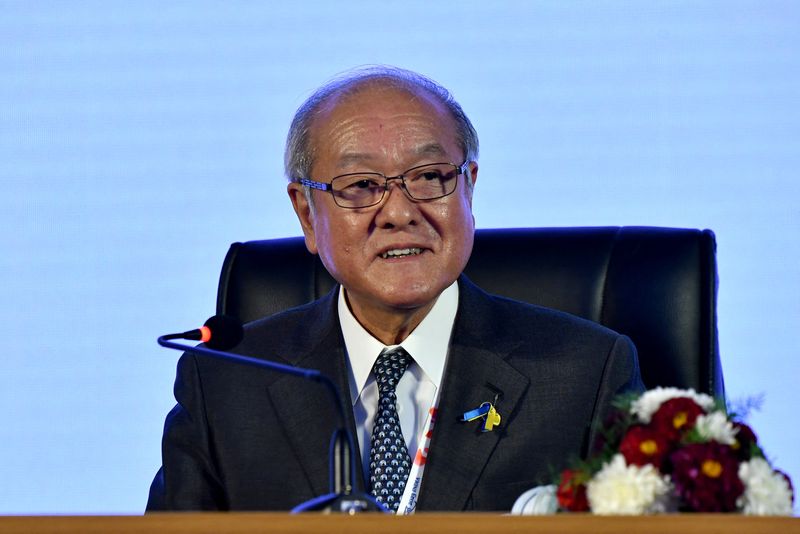TOKYO (Reuters) - Japanese policymakers on Tuesday played down the risk of the economy taking a hit from the collapse of U.S. lender Silicon Valley Bank, even as fears of a contagion hit financial stocks and sent domestic share prices tumbling.
Speaking at a regular news conference, Economy Minister Shigeyuki Goto said the government was closely watching for any potential fallout on Japan's economy, but did not expect a major impact from the U.S. lender's collapse for now.
Finance Minister Shunichi Suzuki echoed the view, saying he saw the possibility of Japan's financial system being jolted by Silicon Valley Bank's collapse as small.
"We're seeing some risk-aversive moves in the market. But Japan's financial system is stable," Suzuki said at a separate news conference.
Japanese financial shares on Tuesday were set for their biggest plunge since the onset of the COVID-19 pandemic, as investors focused on the potential risk to commercial banks from their huge U.S. Treasury holdings.
The drop in bank shares, as well as a rise in the safe-haven yen, sent the Nikkei average down by around 2%, hitting Japanese firms weeks before they close their books on March 31.
The market turbulence also comes ahead of a leadership transition at the Bank of Japan (BOJ) with all eyes on how soon the new governor, Kazuo Ueda, will dial back its massive stimulus once he takes office next month.
Many analysts had expected the BOJ would end or phase out its bond yield curve control (YCC) policy this year, as rising inflation and global interest rates have triggered market attacks on a 0.50% cap set for the 10-year Japanese government bond (JGB) yield.
But with safe-haven demand for JGBs pushing the 10-year yield down to 0.24%, the BOJ may see little rush in tweaking the YCC policy, some analysts say.

"JGB yields are now off their highs, which gives the BOJ some time to contemplate how best to tweak YCC," said Nobuyasu Atago, a former BOJ official who is now chief economist at Japan's Ichiyoshi Securities.
"But that doesn't mean the BOJ can sit idle for too long. If U.S. growth cools, that would hurt Japan's economy and force the BOJ to come up with means to ramp up stimulus," he said. "That's pretty difficult given rates are stuck at zero in Japan."